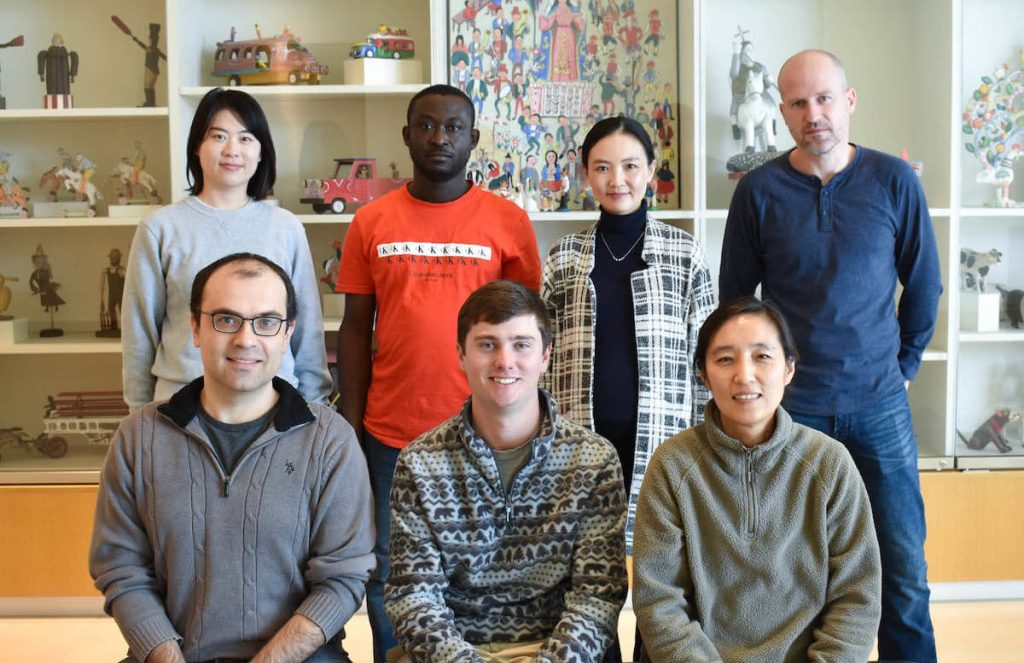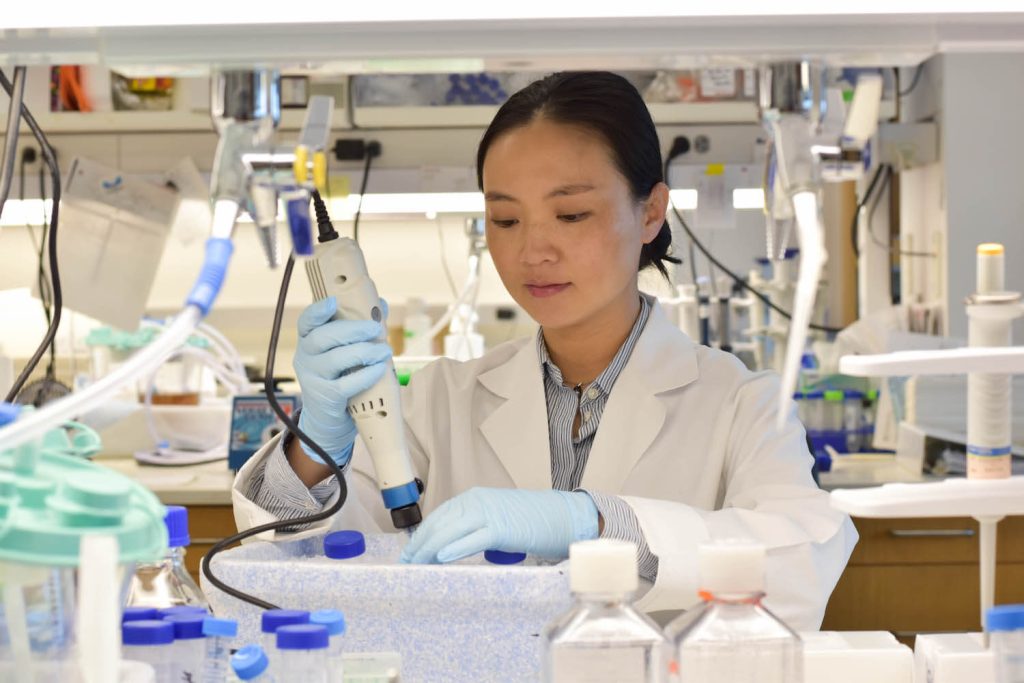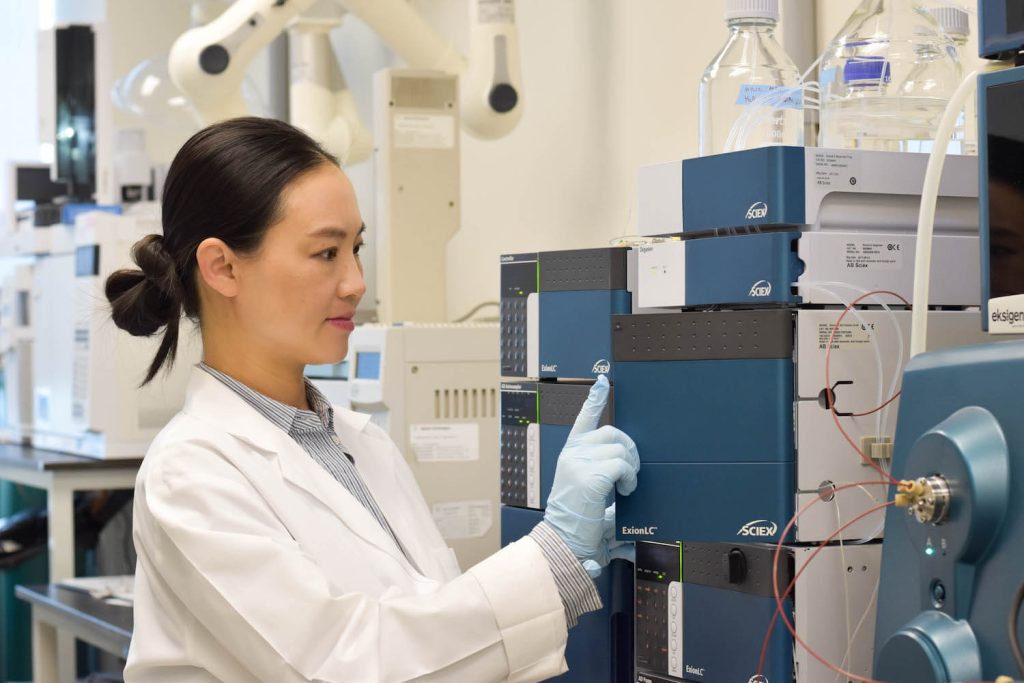May 10, 2022
Yafeng Li, Ph.D., is a postdoctoral fellow in the Agathocleous lab in CRI. As a trained analytical chemist specializing in mass spectrometry, she studies how metabolites, the small molecules of cellular metabolism, impact the function of different hematopoietic cell types.
What are you researching?
I’m working on two main projects; both are centered around the question of how central carbon metabolism enzymes impact cellular development and cell functions. Enzymes in the central carbon metabolism pathway convert sugars into metabolic precursors, which cells use to grow and proliferate.
My first project is focused on understanding how metabolism regulates the immune functions of neutrophils, the most abundant type of innate immune cells. Neutrophils are the immune system’s frontline soldiers when infection happens, but they can be a double-edged sword because they can cause serious tissue damage. I did a metabolomic analysis of neutrophils from COVID-19 patients and found the levels of many metabolites changed in the neutrophils of patients with severe disease. I then identified some of the metabolites and pathways that regulate the immune functions of neutrophils. Our work helps us understand why neutrophils in severe COVID-19 patients are so aggressive and damage the patient’s tissues. We’re ready to submit this paper, and I am so excited to see it finalized.


How did you end up in CRI?
I am trained as an analytical chemist and work at the intersection between chemistry and biology. After two and a half years of analytical chemistry postdoc training on metabolomics, I could have started looking for academic positions in analytical chemistry. However, I was so fascinated by metabolomics and metabolism that I decided to take another postdoc training in biology and metabolism. CRI is one of the top institutes for metabolism research, and its publication record greatly impressed me. I know what I am learning here will help me set up my lab in the future.
What does a typical day look like for you?
My typical workday schedule begins when I go to work around 9 a.m. If there are no big experiments, I am home in the evening to do light cooking for dinner. If there are big experiments or other urgent things to attend to, I’ll stay in the lab later. I go to sleep usually around 11 after reading the latest papers and books.


Do you have any hobbies?
On weekends, I usually go to ballet class. Ballet is definitely my favorite activity outside of work. The synchronizing of piano music and body movement makes me feel joyful. I also like going to the gym. The mix of dopamine generated in my brain combined with seeing so many energetic faces there is great.
Where do you see yourself in 10 years?
I hope I can have my own lab well established by then, studying metabolism and combining my knowledge of both chemistry and biology. I’d love to develop new tools to study rare cell types and probe their metabolism to gain new insights into their function.

© 2025 Children’s Research Institute Dallas Texas | Privacy | Site Policies